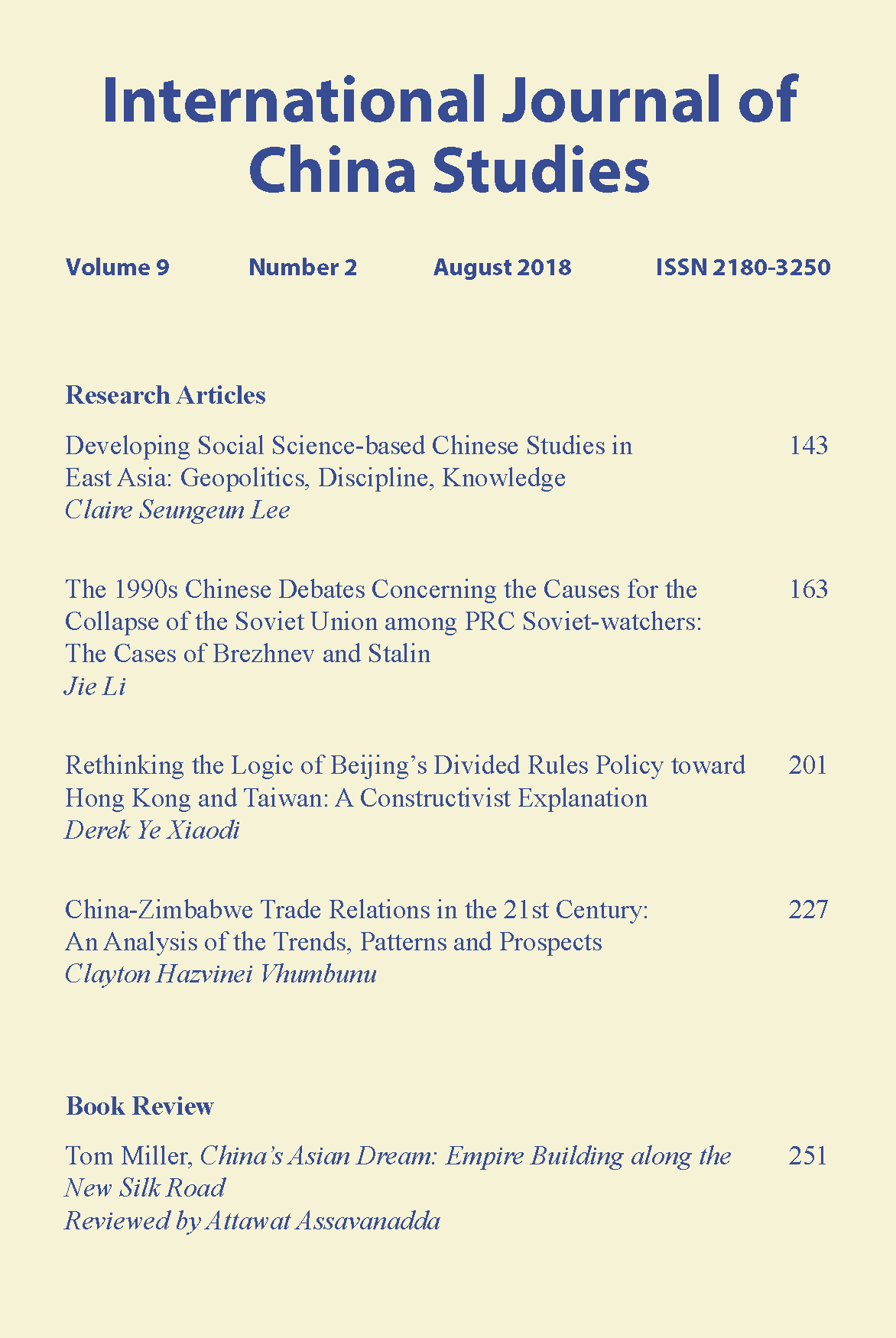The 1990s Chinese Debates Concerning the Causes for the Collapse of the Soviet Union among PRC Soviet-watchers: The Cases of Brezhnev and Stalin
Keywords:
Deng Xiaoping, Chinese Soviet-watchers, Post-Tiananmen, Leonid Brezhnev, Joseph StalinAbstract
The breakup of the Union of Soviet Socialist Republics in 1991 has had a profound impact on China. The Soviet dissolution has had a variety of significant repercussions on Chinese politics, foreign policy, and other aspects. However, many myths about post-1991 Chinese research on the Soviet Union have been circulated and perpetuated by a body of secondary literature written by Western scholars. Some issues have been unclear or misunderstood in previous studies, and one of these inaccuracies has to do with Chinese
perceptions of the role of the last Soviet leader Mikhail Gorbachev.
A number of the secondary sources argue that, after 1991, because of their impact on China’s 1989 pro-democracy movements as perceived by the Chinese communist regime, most Chinese Soviet-watchers considered Gorbachev and his liberalization to be the fundamental catalysts in triggering the collapse of the Soviet Union. The literature seems to agree that those Chinese scholars were univocal in assessing Gorbachev’s individual actions and failings, and that they overstated the implications of Gorbachev and his liberal programs for China.
This research reveals that since the mid-1990s, many Chinese Sovietwatchers have traced the roots of the tragedy back to the administrations of Leonid Brezhnev and Joseph Stalin, arguing that the conservative forces and the rigid communist system were the decisive factors in bringing it about – rather than the figure of Gorbachev alone. Their writings confirmed and legitimized the Chinese leader Deng Xiaoping’s post-Tiananmen agendas of pposing leftism and saving Chinese socialism by speeding up the reform and
open door policy. By depicting that Brezhnev’s stagnation and Stalin’s rigid centralization as the primary causes of the collapse, their writings suggested that state legitimacy comes more from economic results than democratic politics. They justified that economic prosperity, not political reform, which is the reigning principle for the survival of Chinese socialism after the fall of the Soviet Union.

